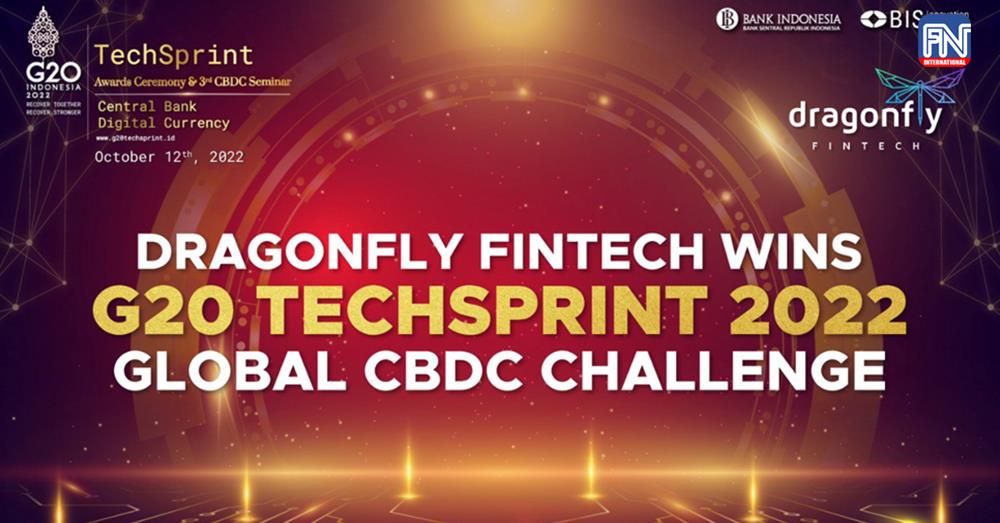
Phnom Penh (FN), Oct. 24 – Dragonfly Fintech Pte. Ltd. has won the much-coveted G20 TechSprint 2022 challenge.
Dragonfly won against other finalists, which include BitMint, FIS, Mastercard Asia Pacific, R3, Ripple, Roxe CBDC, S.e.A.(Stellar, eCurrency and ANZ).
Organized by BIS Innovation Hub (Bank for International Settlements) and Bank Indonesia under the Indonesian G20 Presidency, this third edition of the TechSprint aims to catalyze the development of CBDCs. About 100 technologists and innovators from all over the world presented solutions for the design and implementation of retail and wholesale CBDC.
In this showcase of best-in-class solutions, each participating team had to show prototypes and was asked to address one of three high-priority problem statements:
• Building effective and robust means to issue, distribute, and transfer CBDCs
• Enabling Financial Inclusion
• Improving interoperability
Team Dragonfly from Singapore, led by CEO and founder Lon Wong, won the much coveted “Building effective and robust means to issue, distribute and transfer CBDCs” category with their production-ready prototype “End-to-End CBDC Solution.” The Dragonfly solution features a holistic and cost-effective proprietary blockchain ledger with unique built-in features and includes a mobile wallet and digital identity platform.
In his acceptance speech, Lon stressed that the basic tenets of an effective CBDC solution must include the ability to be:
• implemented as a self-contained initiative
• connected to existing financial systems already in place
• highly flexible, scalable, and compatible
• cost effective in implementation, maintenance, and operation; taking into account the lowest attainable cost of ownership
The technology for the solution should be distributed and decentralized so that there is no single point of failure. Moreover, the system design should also include the use of other devices such as NFC cards to transact instead of just using smart devices only. System components should be kept to a minimum, simple, and inexpensive, preferably in a cloud environment.
Payment service providers and financial institutions should be given some flexibility in the technology without requiring implementation of expensive CBDC edge servers in their premises. In a geographically expansive country like Indonesia, the design should be a cluster of networked clusters for high throughputs and reliability, similar to how the internet is designed.
User experience and transactions should be seamless, regardless of the location, and a payment settlement rail should be a core component of the CBDC system where counterparty risk is almost non-existent via an augmented escrow function performed by a neutral and independent party.
It is clear from Lon’s speech that Team Dragonfly are fully cognizant of the intricate needs of a winning solution that can be both an effective and robust means to issue, distribute, and transfer CBDCs.
Dragonfly technology is used by Dragonfly Fintech (Cambodia) Plc, which is a payment service institution licensed by National Bank of Cambodia (NBC) known as Payluy eWallet in Cambodia.
Central bank digital currencies (CBDC) are digital assets, similar to digital currency, issued by a central bank of a country. They are pegged to the value of that country's fiat currency.
The Bank for International Settlements (BIS) is an international financial institution owned by central banks that "fosters international monetary and financial cooperation and serves as a bank for central banks". Sixty-three (63) central banks and monetary authorities are currently members of the BIS.
For further information, please contact:
Richard Soo: [email protected]
=FRESH NEWS





